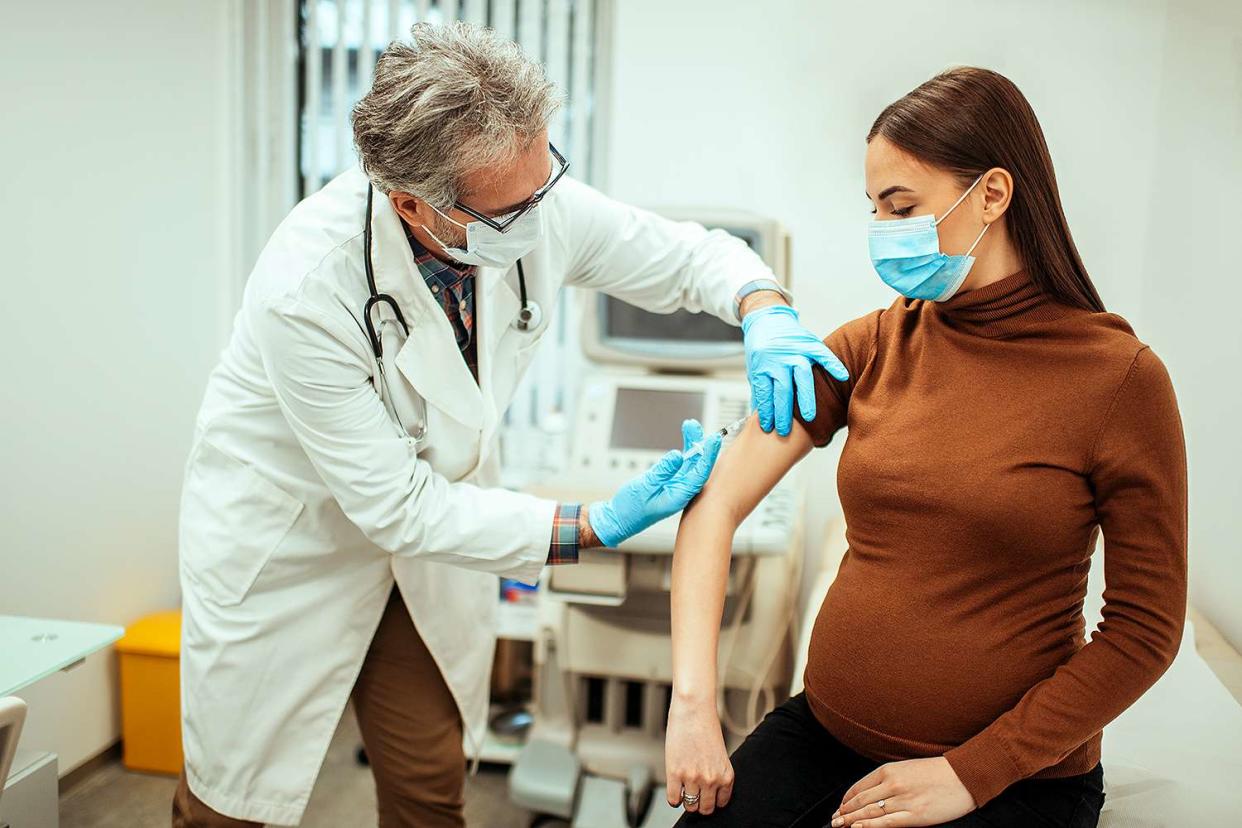Pfizer's RSV Vaccine Prevents Severe Illness in Infants — and It Could Be Available as Early as Next Year

Getty
There is finally some good news about RSV: A vaccine may be on the way.
Pfizer announced Tuesday that its Respiratory Syncytial Virus (RSV) vaccine prevents severe illness in infants. If approved by the FDA, it could be available as early as next year.
The vaccine is about 80% efficient at preventing severe RSV in the first three months of a baby's life, and nearly 70% efficient at preventing severe RSV in the first six months of a baby's life, according to Pfizer. The vaccine is administered to pregnant women as a single dose in the late second or third trimester.
The company says it plans to submit an application for FDA approval by the end of 2022. If approved, it would be the first maternal vaccine available to fight the potentially deadly disease.
The news comes as RSV cases are at a high in the United States. The virus, which causes mild, cold-like symptoms among adults and older children, can result in severe complications in babies younger than 12 months as it spreads to the lower respiratory tract, causing pneumonia (infection of the lung) and bronchiolitis (inflammation of the lung).
RELATED: RSV Is on the Rise — Here's What a Pediatrician Wants Parents to Know
Spread through coughing and sneezing, RSV usually peaks in late winter, but it's striking earlier this year and causing a shortage of pediatric hospital beds. About 71% of the nation's 40,000 pediatric beds are currently filled, according to the Department of Health and Human Services.
The surge has led to severe illness in many young children, and even death. "Because of pandemic precautions like masking and social distancing, kids who are infants, or 2 or 3 years old, probably haven't been exposed to RSV, like their older brothers and sisters were during previous years. So there's an "immunity gap" and more children now are getting more sick from this germ," Dr. Elizabeth Murray, a pediatrician specializing in Pediatric Emergency Medicine and Child Health Advocacy and a member of PEOPLE's Health Squad previously told PEOPLE.
RELATED: RSV Illness Surge Fills More Than 70% of U.S. Pediatric Hospital Beds
Pfizer's clinical trial followed 7,400 pregnant mothers ages 49 and younger and was found to be well-tolerated with no safety concerns for mothers or babies. The pregnant women were monitored for six months after delivery, while the babies were followed for a year. Pfizer also said the vaccine was 57% effective at preventing lower respiratory tract infections that require doctor visits in the baby's first 90 days.
"We are thrilled by these data as this is the first-ever investigational vaccine shown to help protect newborns against severe RSV-related respiratory illness immediately at birth," said Annaliesa Anderson, Ph.D., Senior Vice President and Chief Scientific Officer, Vaccine Research & Development, Pfizer, in a press release.
"We look forward to working with the FDA and other regulatory agencies to bring this vaccine candidate to expectant mothers to help protect their infants against severe RSV during their most vulnerable first six months of life, which has the highest burden of RSV illness in infants," she said.

